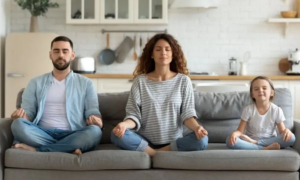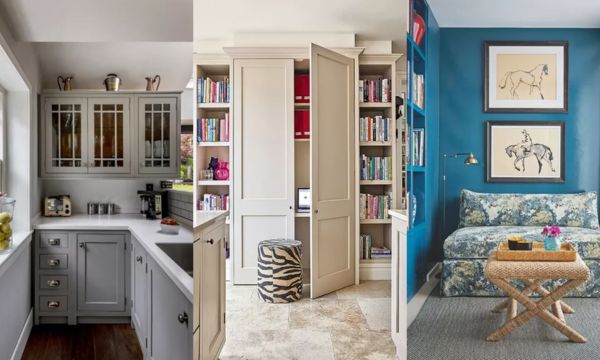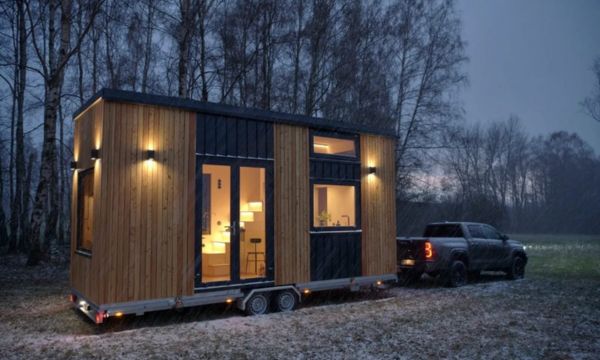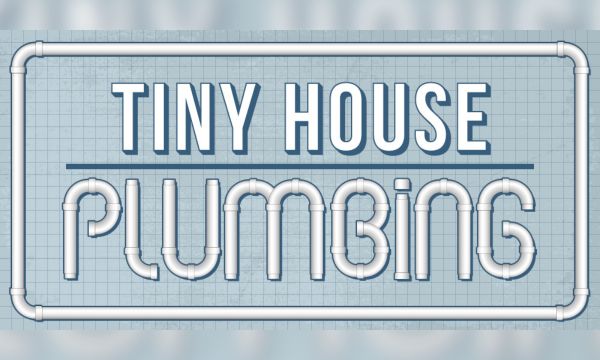Tiny House Living: Enhancing Emotional and Mental Well-being
In a world full of hustle and bustle, the concept of tiny house living gets a lot of attention. Tiny homes usually range from 100 to 400 square feet and offer an easygoing, minimalist lifestyle. While they may not be right for everyone, proponents of tiny house living argue that it can have a profound effect on emotional and mental health. In this article, we explore how living in a tiny house can positively impact mental and emotional well-being.
Less Confusion, More Clarity:
One of the main benefits of living in a tiny house is the need to downsize and tidy up. Small homes have limited space, which encourages prioritizing important possessions and eliminating unnecessary clutter. Research shows that physical clutter can lead to increased stress and anxiety. By living in uncluttered and organized spaces, tiny house residents often experience a sense of clarity and serenity, which promotes a positive state of mind.
Closer to Nature:
Many tiny houses are located in scenic natural settings, such as forests, mountains, or near bodies of water. Being close to nature has been scientifically proven to have many mental health benefits. Nature has a calming effect on the mind and reduces feelings of depression and anxiety. Living in a tiny house offers residents the opportunity to immerse themselves in nature on a daily basis, which promotes a greater sense of well-being and contentment.
Financial Freedom:
One of the main reasons why people choose to live in a tiny house is the enormous cost savings that can be achieved. It is cheaper to build or buy a tiny house than a traditional house, and it also has lower energy bills and maintenance costs. Financial freedom and the reduction of financial stress can have a significant impact on mental health, allowing individuals to focus on personal growth and happiness rather than financial worries.
See Too:
Stronger Sense of Community:
Living in a small house tends to generate a greater sense of community. Tiny house residents often form close-knit communities and support networks. Compact living forms promote social interaction, which increases social connection and a sense of belonging. Relationships are critical to emotional health, and tiny house communities provide residents with ample opportunities to bond and support each other.
Sustainable Living:
Living in a tiny house can promote a more sustainable lifestyle. Many tiny home enthusiasts are environmentally conscious and adopt eco-friendly practices. Sustainable living can lead to a sense of purpose and fulfillment, which can positively impact mental health. Knowing that one’s lifestyle choices contribute to environmental conservation can boost self-esteem and overall well-being.
Conclusion
Living in a tiny house isn’t just about shrinking the physical space, it’s about shrinking the space. It’s a lifestyle choice that can have a profound impact on emotional and mental health. From clean, organized spaces to being close to nature and a sense of community, tiny houses offer a unique and refreshing perspective on living. As tiny houses become more popular, more and more people are discovering the potential benefits for their mental health and general well-being. Embracing tiny house living may just be the path to a more balanced and fulfilled life.

Tiny House Living
Frequently Asked Questions
1. Are tiny houses environmentally friendly? How does sustainable living affect well-being?
Many tiny house enthusiasts adopt eco-friendly practices that make tiny houses a more sustainable housing option. Sustainable living can lead to a sense of purpose and fulfillment, which can positively impact mental health. Knowing that one’s lifestyle choices contribute to environmental conservation can boost self-esteem and overall well-being.
2. Does living in a tiny house reduce stress and anxiety?
Yes, living in a tiny house can reduce stress and anxiety. The limited space encourages residents to prioritize the basic necessities of life, resulting in a more organized and tidy living environment. In addition, being close to nature and experiencing financial freedom can help maintain a calmer, more balanced state of mind.
3. Are there mental health benefits of living closer to nature in a tiny house?
Yes, research shows that being close to nature has many benefits for mental health. Living in a small house often allows people to choose scenic natural settings, such as forests or mountains, which can promote relaxation, reduce depression, and improve overall emotional well-being.
4. How does tiny house living achieve financial freedom?
Living in a small home often reduces housing costs, utility bills and maintenance. The affordability of tiny houses allows individuals to achieve financial freedom and reduce financial stress, allowing them to focus on personal growth and happiness.
5. Can living in a tiny house foster a sense of community?
Yes, living in a tiny house can foster a stronger sense of community. Many Tiny House residents form close-knit communities and support networks. Compact living forms promote social interaction, which increases social connection and a sense of belonging.
 Organization Hacks for Small Living Spaces
Organization Hacks for Small Living Spaces
Ad Living in a small area can be difficult, but it can also be fun if you […]
More Tiny House Mobility and Flexibility
Tiny House Mobility and Flexibility
Ad In recent years, the tiny house movement has exploded in popularity worldwide. The appeal of downsizing […]
More DIY Plumbing in Tiny Houses
DIY Plumbing in Tiny Houses
Ad We welcome you to the world of tiny houses, where ingenuity and imagination go hand in […]
More